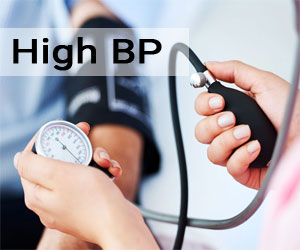- Home
- Editorial
- News
- Practice Guidelines
- Anesthesiology Guidelines
- Cancer Guidelines
- Cardiac Sciences Guidelines
- Critical Care Guidelines
- Dentistry Guidelines
- Dermatology Guidelines
- Diabetes and Endo Guidelines
- Diagnostics Guidelines
- ENT Guidelines
- Featured Practice Guidelines
- Gastroenterology Guidelines
- Geriatrics Guidelines
- Medicine Guidelines
- Nephrology Guidelines
- Neurosciences Guidelines
- Obs and Gynae Guidelines
- Ophthalmology Guidelines
- Orthopaedics Guidelines
- Paediatrics Guidelines
- Psychiatry Guidelines
- Pulmonology Guidelines
- Radiology Guidelines
- Surgery Guidelines
- Urology Guidelines
Prolonged exposure to ionizing radiation linked to high BP

RUSSIA: A recent study of more than 22,000 nuclear facility workers in Russia has found that prolonged exposure to low doses of ionizing radiation increases the risk of high blood pressure (hypertension). High BP, in turn, can lead to varied health complications including heart attack, heart failure, and stroke.
Ionizing radiation is a form of energy that a growing number of people find themselves exposed to every day, particularly when they undergo diagnostic exams using X-rays and CTs, or computed tomography scans. Exposure to the radiation is commonly associated with the development of cancer, but its link to developing heart disease and stroke is not as well known.
The study, published in the American Heart Association's journal Hypertension, is the first study to establish an association between low doses of ionizing radiation and increased risk of hypertension in a large group of worker chronically exposed over many years.
Tamara Azizova, Clinical Department, Southern Urals Biophysics Institute, Ozyorsk, Chelyabinsk region, Russia, and colleagues looked at the incidence of hypertension in a group of employees at Mayak Production Association, Russia’s first large-scale nuclear enterprise. The workers were hired between 1948 and 1982 and had been on the job for an average of 18 years, consistently exposed to low levels of ionizing radiation. Half had worked there for more than 10 years. All of the workers had comprehensive health check-ups and screening tests at least once a year with advanced evaluations every five years.
Also Read: Obese patients have increased cancer risk as they receive higher radiation dose
The researchers evaluated the workers' health records up to 2013. On evaluation they found that:
- More than 8,400 workers (38 per cent of the group) were diagnosed with hypertension, as defined in this study as a systolic blood pressure reading of 140 mm Hg, and a diastolic reading 90 mm Hg.
- Hypertension incidence was found to be significantly associated with the cumulative dose.
- No significant association of hypertension incidence with cumulative liver absorbed dose from internal α-particles was found.
- The hypertension incidence among the workers in the study was higher than that among Japanese survivors of the atomic bomb at the end of World War II but lower than the risk estimated for clean-up workers following the Chernobyl nuclear accident.
Also Read: Cell phone radiation causes cancer in rats, does not apply to humans: Study
The differences may be explained by variations in exposure among the three groups, according to the researchers. Following the atomic bombing, the Japanese experienced a single, high-dose exposure of radiation, the Chernobyl workers were exposed to radiation for a short time period (days and months), while the Mayak workers were chronically exposed to low doses of radiation over many years.
How radiation exposure may increase the risk of hypertension is still a question, according to Azizova. "So far, the mechanisms remain unclear, not only for certain cohorts but also for the general population. One of the main tasks for the coming decade is to study the mechanisms of hypertension and heart and brain atherosclerosis occurring in people who are - and who were exposed - to radiation."
The authors note that their study is a retrospective one, and while many health conditions and behaviors were documented in the medical records of the workers (such as age, smoking, alcohol consumption and body mass index), other factors, such as stress and nutrition, were unavailable for researchers to be taken into account in this study.
For a detailed study log on to https://doi.org/10.1161/HYPERTENSIONAHA.118.11719

Disclaimer: This site is primarily intended for healthcare professionals. Any content/information on this website does not replace the advice of medical and/or health professionals and should not be construed as medical/diagnostic advice/endorsement or prescription. Use of this site is subject to our terms of use, privacy policy, advertisement policy. © 2020 Minerva Medical Treatment Pvt Ltd